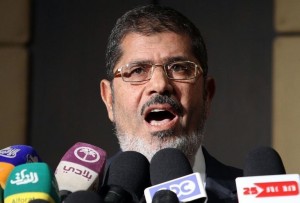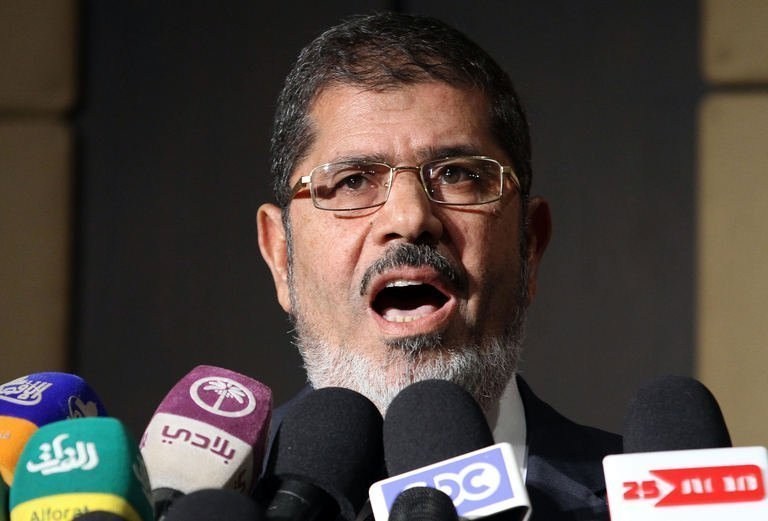
President-Elect Mohamed Morsi summarily denied saying he intends to forge ‘closer ties with Iran,’ first published by the Iranian Fars News Agency, sparking international controversy.
The news instantly became the top story in the region and internationally when a number of media outlets began questioning the motives behind the former Muslim Brotherhood affiliated president.
The interview included other divisive statements. The FNA interview said Morsi sought revisions to the Camp- David peace accord with Israel, which is incidentally the accord that led to Iran severing all diplomatic ties with Egypt.
This is not the first time Iran has attempted to capitalise on regional events to advance an agenda. Supreme Leader of Islamic Revolution Ayatollah Seyed Ali Khamenei has frequently suggested that Iran’s 1979 Islamic revolution was the inspiration for the ‘Arab Spring.’
Similarly, the FNA reported that Iranian Foreign Minister Ali Akbar Salehi once told Secretary-General of the Popular Front for the Liberation of Palestine Maher Taher that the “Islamic awakening in the region is to further isolate Israel.”
Such a desperate attempt to initiate leverage – sometimes even impose it – in the Middle-East could be because Iran perceives itself to be isolated. The Islamist state’s stances regarding the most current hot-button issues in the region are often frowned upon by Western powers and the international press. Iran’s full support of the Bashar Al-Assad regime in Syria, despite the regime’s crackdown against peaceful protesters, has only further isolated Iran.
Turkey, which hosts one of the largest havens for Syrian refugees fleeing the violence– some of whom are members of the Free Syrian Army – has denounced Al-Assad’s crackdown on protesters on several instances. The tension has reached a crescendo following the downing of a Turkish jet last week.
Iran is also being isolated by the United States and its allies who are bound together in their opposition to Iran’s nuclear ambitions. In June after six-party talks failed, a new round of sanctions imposed against Iran created more challenging economic conditions for the country. Such an economic blow is bound to make Iran feel less popular and secure in the region. Yet, what makes matters worse for Iran is Turkey’s oil-supplier replacement: Saudi Arabia.
With Iran’s influence slowly waning due to the progress of its competitors, perhaps Iran needs to look for new allies in the region.
It could have just been wishful thinking when the FNA quoted President-Elect Morsi in an ‘interview’ where he said the country sought to “create a strategic balance in the region,” or maybe it was the actions of an ever-more isolated state hoping for a reply.


